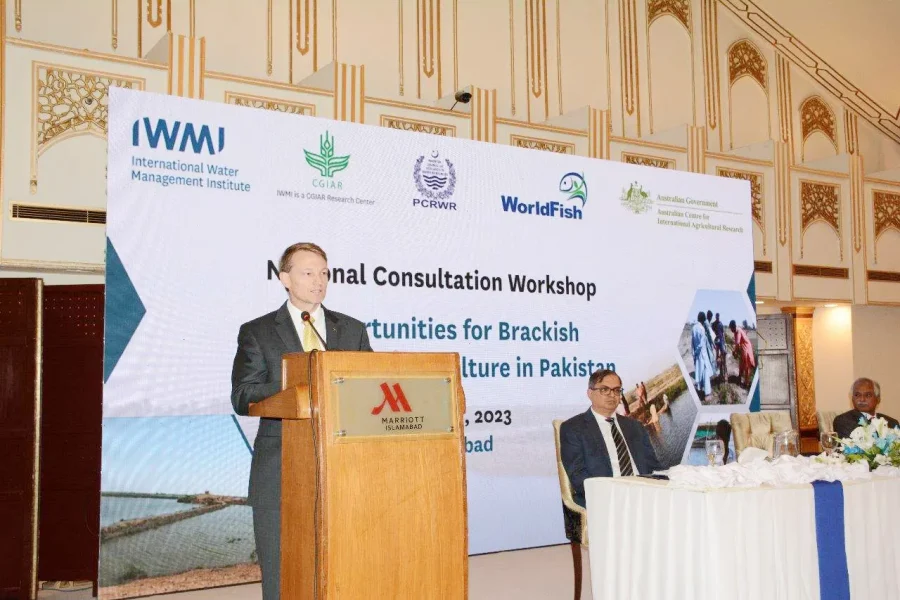Zubair Qureshi Islamabad
The saline aquaculture in the salinity-affected districts of Sindh and Punjab has huge potential to boost the blue economy and sustainable livelihoods along the Southern Indus Basin.
There is tremendous scope for saline aquaculture in Pakistan as an alternative form of livelihood for farmers dealing with increasing levels of salinity, and to address food security and malnutrition in the country.
To date, there has not been a comprehensive assessment of the current state and potential of the saline aquaculture sector in Pakistan.
In this context, International Water Management Institute (IWMI) Pakistan in partnership with WorldFish is implementing opportunities for saline aquaculture in Pakistan project, with funding from the Australian Centre for International Agricultural Research (ACIAR).
Damien Donavan, Acting High Commissioner of Australia said, “Australia and Pakistan share common problems related to climate change, including increased dependence on poor groundwater and accelerated salinity levels.
This is a collective national and global problem. Ultimately, the aim of this project is to help at-risk poor farming communities and secure livelihoods in Pakistan. Australia will continue to support Pakistan for this important venture.”
The project aimed to develop a shared understanding of the potential of saline aquaculture with farming communities and relevant government and non-government agencies as productive and profitable new farming activities for smallholders living in marginalized saline areas of the Southern Punjab and Sindh provinces.
IWMI Pakistan conducted a comprehensive survey of saline fish farmers across four districts from Sindh (Thatta and Badin) and Punjab (Muzaffargarh and Rahim Yar Khan). These Districts were selected in consultation with stakeholders to identify marginalized saline areas where aquaculture could be improved.
A fish farmer Ahmar Bilal from Muzaffargarh said, “With the passage of time conditions have become worse as fish feed and fertilizer prices have soared, leading to economic losses. I have observed that people who do fish farming through traditional methods are reluctant to use new technology.”
A woman fish farmer, Rabia Najaf said, “I have been helping my father in fish farming for the last five years. People in our area lack knowledge relevant to saline aquaculture. However, I am thankful to IWMI for taking a step to address this issue. I would like to request that training and knowledge sharing with other farmers is also organized so more communities can benefit from this initiative. This will also enable other daughters and women like me to propagate fish farming in our area.”
Dr Mir Allah Dad Talpur, Director General, Inland (Sindh Fisheries Department), and Dr. Riazuddu Qureshi, Director, Fisheries, Saline Water Aquaculture Research Centre (SWARC), Punjab, also took the stage to share their thoughts on the opportunities of saline aquaculture in Pakistan and the work being undertaken by the fisheries department.
As many as 121 fish farmers were interviewed in the four districts subsequently, the team carried out consultative workshops with all farmers at the district level to validate the result. Details reports in this regard will be shared with the public soon. The outcome of this study will provide a roadmap for transformation of saline aquaculture to provide alternative livelihoods of the marginalized small-scale farmers in the Indus Basin and support in boosting the blue economy in the country.










